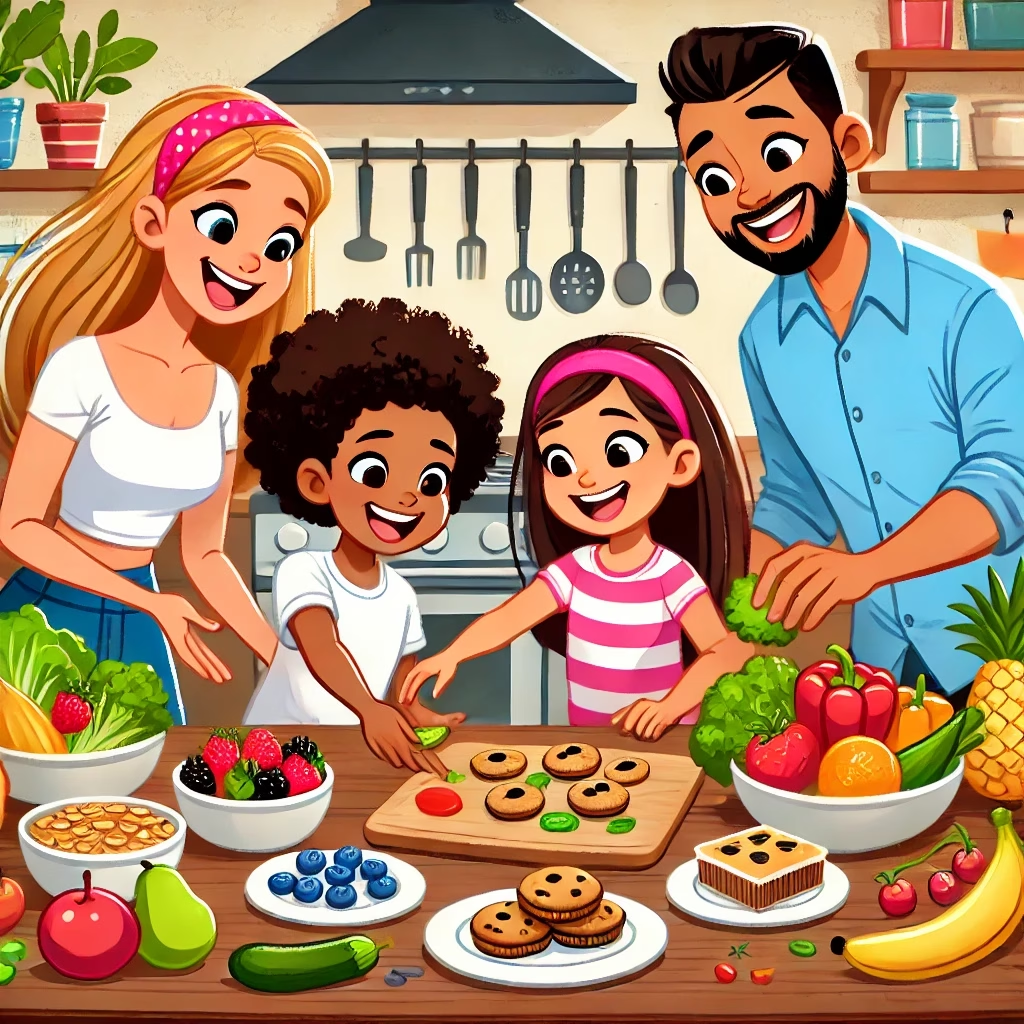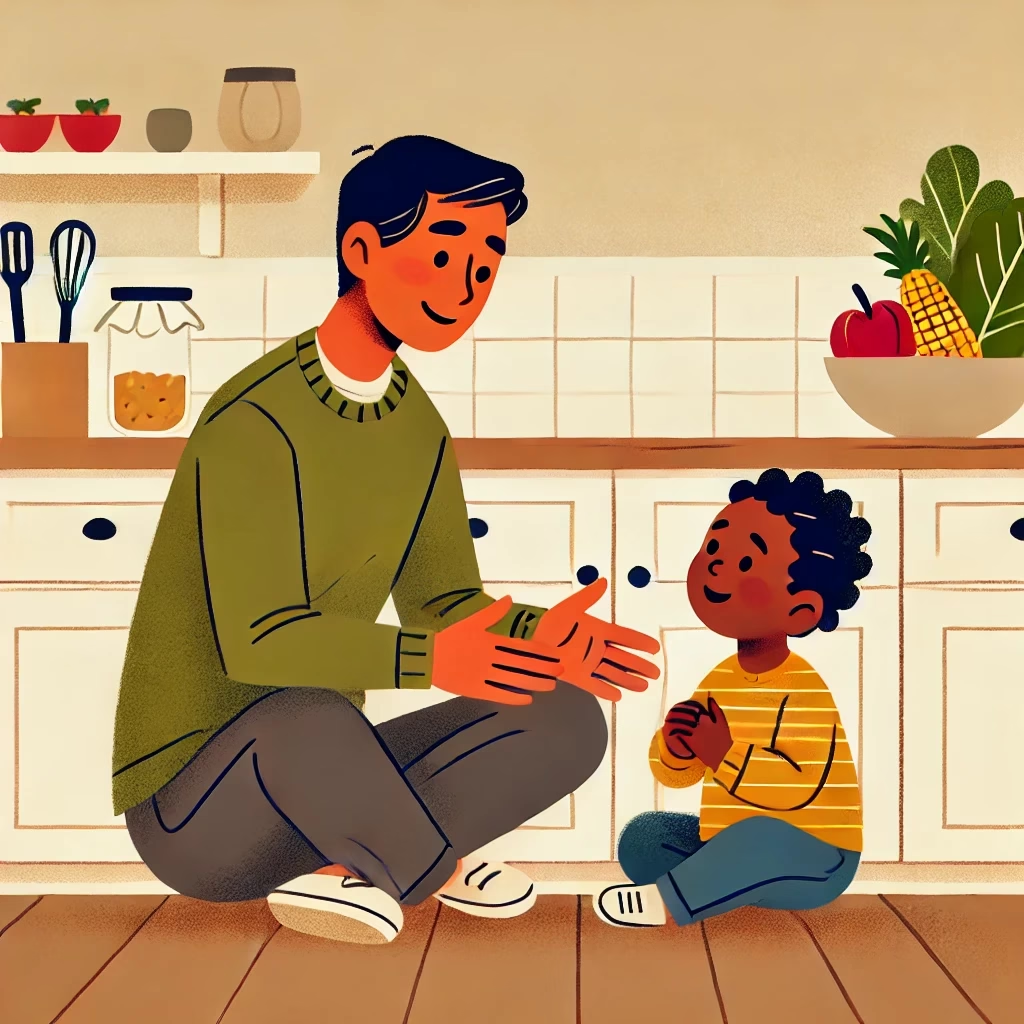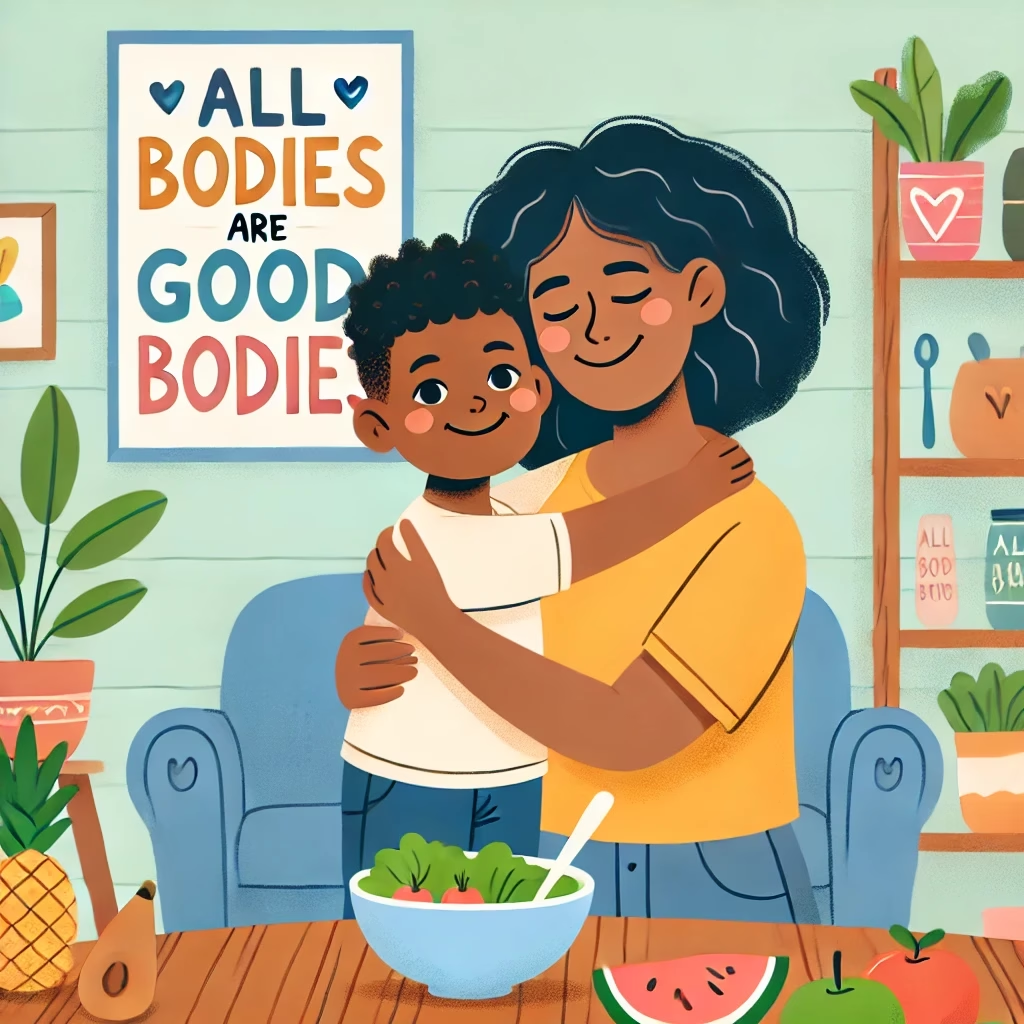How to Raise Mindful Eaters Without Food Shame
7 Gentle Ways to Talk to Kids About Healthy Eating
I will never forget the day my daughter asked if certain foods were “bad.” She wasn’t even 7 yet, but already picking up on messages that food has moral value. That’s when I knew I needed to change how I talked about food—not just what was on her plate.
If y’all are trying to guide your kids toward healthier choices, but you also want to protect their confidence and relationship with food, this post is for you.
As a plant-based mom of four who's been through the ups and downs of body image, weight loss, and healing my relationship with food—I’ve learned that how we talk to our kids matters just as much as what we feed them.
1. Talk About What Food Does, Not What It Is

Instead of labeling food as "good" or "bad," talk about how it makes our bodies feel or function.
“Spinach gives us strong muscles and energy to run faster!”
“Cookies taste good, but too many might give us a tummy ache.”
2. Make It About Strength, Energy, and Fun

Frame healthy eating around what your kids care about—energy to play, strong muscles, better sleep, shiny hair, glowing skin.
3. Include Them in the Process

Whether it’s choosing veggies at the store or stirring the pot, hands-on time gives them ownership without pressure.
Pro Tip: Let them help make a smoothie and give it a silly name. You’d be surprised what “Green Ninja Juice” can get them to drink!
4. Model the Behavior Without Guilt Talk

If you say, “I shouldn’t be eating this,” or “I’m being bad today,” your kids absorb that shame—even if it’s not directed at them.
“This cupcake is yummy, and now I’m craving something fresh. I think I’ll grab some fruit next.”
5. Focus on Adding, Not Taking Away

Rather than removing all the “junk” overnight, focus on what you can add: more water, more fruits and veggies, more fun ways to move the body.
6. Answer Their Questions with Curiosity

Kids are naturally curious. If they ask why a food isn’t served anymore, avoid lectures. Try:
“That food made me feel really tired after eating it, so I’m trying something new.”
“Some people need different foods to help their bodies feel strong.”
7. Emphasize Worth Over Weight

Keep conversations about health separate from body size. Compliment your kids on their curiosity, strength, and kindness—not how “slim” they look.
“All bodies are good bodies. Eating healthy helps us feel our best—not look a certain way.”
In Summary
Helping kids develop a healthy relationship with food starts with gentle conversations that center on curiosity, energy, and love—not shame. When we model balance, include them in the kitchen, and avoid guilt-based talk, we raise mindful, empowered eaters who feel good in their bodies.
Call to Action
Want more tips like this sent straight to your inbox? Subscribe to The Destined Kitchen newsletter for plant-based family recipes, mom hacks, and wellness support.
And if you're looking to boost your family’s focus and mood, check out our favorite BrainMD Kids Supplements — we’re proud affiliates of a brand that supports brain health the natural way!


